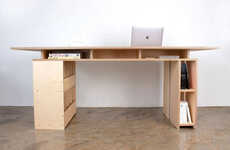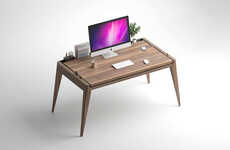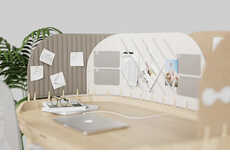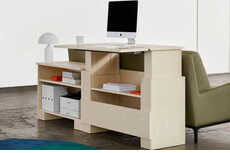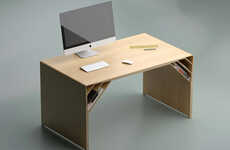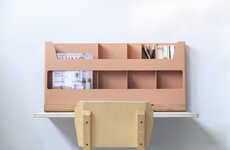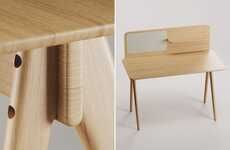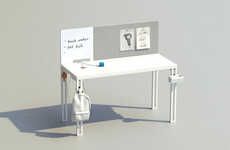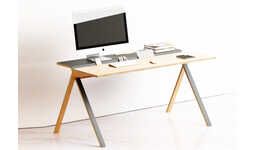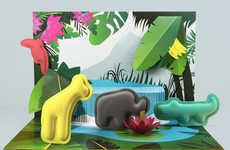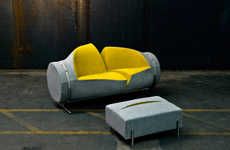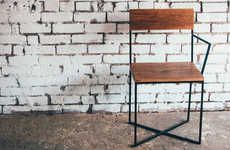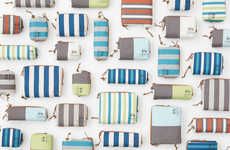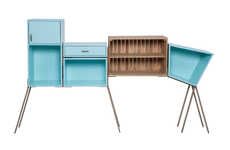
The Sheet Table is an Elegant Workstation with Beautifully Stacked Surfaces
Amelia Roblin — April 2, 2015 — Art & Design
References: luciekoldova & archidesignclub
The rise of the laptop may have resulted in the decline of the desk, yet Lucie Koldova has continued to celebrate the practical furnishing through the creation of her Sheet Table. Looking to arts, crafts and the past for inspiration, the designer put together a composition that resembles a couple of pieces of paper laid one atop the other.
Two plywood panels make up the tabletop, producing a wide base and a smaller lid. Items like sketchbooks, magazines, keyboards and more can be sandwiched for storage. The most noticeably unique feature of the Sheet Table is its upturned back edges, which are what make it look so paper-like. These can support electronics and prop up books, facilitating a multitasking working environment, no matter what tools the user prefers.
Two plywood panels make up the tabletop, producing a wide base and a smaller lid. Items like sketchbooks, magazines, keyboards and more can be sandwiched for storage. The most noticeably unique feature of the Sheet Table is its upturned back edges, which are what make it look so paper-like. These can support electronics and prop up books, facilitating a multitasking working environment, no matter what tools the user prefers.
Trend Themes
1. Layered Furniture - By incorporating stacked surfaces, there is an opportunity for disruptive innovation in creating multi-functional and space-saving furniture designs.
2. Multitasking Workstations - Designing workstations that accommodate various tools and support efficient multitasking can lead to disruptive innovation in office furniture and productivity solutions.
3. Nostalgic Design Inspirations - Exploring past design elements and incorporating them into modern furniture can create disruptive innovation opportunities that combine nostalgia and functionality.
Industry Implications
1. Furniture Manufacturing - Incorporating layered surfaces and innovative designs can disrupt the furniture manufacturing industry by offering unique and practical solutions for consumers.
2. Office Supplies - Developing office supplies and accessories that can be seamlessly integrated into multitasking workstations can bring disruptive innovation into the office supplies industry.
3. Interior Design - Integrating nostalgic design inspirations with modern interior design can lead to disruptive innovation opportunities in creating unique and visually appealing spaces.
5.6
Score
Popularity
Activity
Freshness

